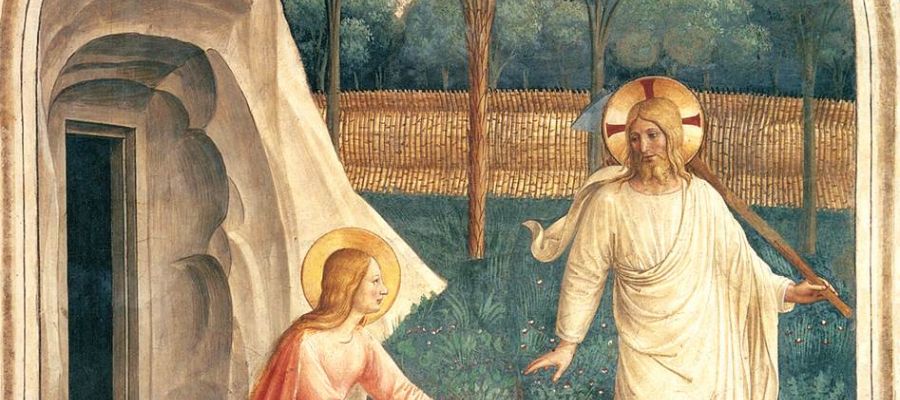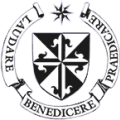
Master of Arts (Biblical Studies) (Level 9)
Aims and Objectives
The Master of Arts (Biblical Studies) provides:
- a detailed study of the worlds of the Bible
- an in-depth appraisal of historical and contemporary methods of biblical interpretation
- an introduction to biblical Greek and Hebrew for exegetical purposes
- a thorough exegesis of one book from each of the Old and New Testaments
- an exploration of contextual applications of scripture
- an opportunity to engage in supervised research at postgraduate level
Course Overview
This MA (Biblical Studies) by blended learning is particularly suitable for those who cannot attend classes regularly. The modules are delivered by suitably qualified and experienced scripture scholars who are specialists in their disciplines. The MA provides an excellent foundation for further studies, teaching, pastoral and retreat work.
An option exists to exit with a Graduate Diploma in Arts (Biblical Studies).
Assessment Method
There is a taught component consisting of eight modules (60 credits in total) delivered over three semesters of 15 weeks. A dissertation of 15,000 words (30 credits) is completed in the fourth semester.
Course Duration
Two years (part time).
Course Delivery
Delivery is through blended learning (a combination of onsite and online learning). Attendance at two onsite weekends in each of semesters 1, 2 and 3 is required. We are not accepting enrolments for this course in 2025.
Admission Requirements
The degree is suitable for students with a Level 8 (honours) degree in which theology or religious studies is a major component. Candidates must have obtained at least a second class honours degree. An interview will normally be part of the selection process. Not all candidates with the minimum requirements will be automatically accepted.
Fees
Fees are payable at the beginning of the first semester for the forthcoming year and at the beginning of the third semester for the second year. An instalment payment plan is available.
Application Fee €40
Year One €3,170
Year Two €1,785
The Total Fee is €4,995
Application Deadline
We are not accepting enrolments for this course in 2025.
Prospectus
Click HERE to download Prospectus
Modules
These are the modules available in each semester. Click each module title to view its details.
Autumn
Year 1
This module provides students with the tools to undertake research and writing at postgraduate level. It focuses on specific research methods for scripture including hermeneutics, exegesis, linguistic and textual analysis, and also provides guidelines for preparation and submission of dissertations.
This module provides students with the skills to engage with the "world behind the text". It examines the historical, sociological, cultural, linguistic and religious contexts of the communities and the Jewish and Greco-Roman worlds from which the Bible emerged.
This module gives students a familiarity with Biblical Greek for exegetical purposes. It introduces key vocabulary and basic grammar to enable translation of a selection of New Testament texts from Biblical Greek to English.
Year 2
This module aims to assist students in reading the Bible as the inspired word of God, with reference to hermeneutical approaches from the Church Fathers, medieval theologians, the Reformers, the mystical traditions as well as contemporary approaches. Students explore the Bible as the basis for theology and the Christian life. The module enables students to identify different literary genres across both Old and New Testaments by engaging with a representative sample of primary texts.
This module acquaints students with the distinctiveness of the Fourth Gospel and provides an opportunity to explore selected themes. Scholarly issues of interpretation in the Fourth Gospel are evaluated and different exegetical tools are applied.
Spring
Year 1
In this module students are introduced to the study of Biblical Hebrew for the purposes of exegesis. They become familiar with the Hebrew alphabet, verbs and syntax and develop a beginner's level of translation from Biblical Hebrew to English.
In this module students examine the overarching themes of Genesis, applying various methods of biblical criticism and analysing what draws it together as a single literary work. There is a particular focus on different hermeneutical and theological approaches to the stories of Creation and the Fall.
Choose One Elective* from:
(i) Women in Scripture
This module explores the theme "Women in Scripture" from two key perspectives: (1) women in the Bible - how women are portrayed in biblical texts, and (2) the question of interpretation - how these stories have been presented. Students are invited to profile several women in both the Hebrew and Christian Scriptures and consider how these women are represented in the biblical text and the lectionary, as well as in art, literature, music and film.
(ii) The Bible and Ecology
In the context of present-day environmental concerns, this module considers the Bible afresh through the lens of ecology. St Ephrem, the Syrian poet, once said: "Nature and scripture bear witness to the Creator; nature, through our use of it; scripture, through our reading of it."
(iii) Lectio Divina: A Way of Praying and Doing Theology
This module helps students explore the central place of lectio divina in the Church in the early Christian centuries and its re-emergence in the past fifty years. They learn that it is a way of meeting God in life and prayer and a way of doing theology - theology defined as faith seeking understanding - exploring what God has revealed about himself, ourselves and the world in which we live.
In doing lectio divina with others, students experience its power to build community and to inspire Christian living.
*The electives offered will be subject to student numbers and interest.
You take 1 of these electives.
i
Women in Scripture
This module explores the theme 'Women in Scripture' from two key perspectives: (1) women in the Bible - how women are portrayed in biblical texts, and (2) the question of interpretation - how these stories been presented. Students are invited to profile several women in both the Hebrew and Christian Scriptures and consider how these women are represented in the biblical text and the lectionary as well as in art, literature, music and film.
Credits: 5
ii
The Bible and Ecology
In the context of present-day environmental concerns, this module considers the Bible afresh through the lens of ecology. St Ephrem, the Syrian poet, once said: “Nature and scripture bear witness to the Creator; nature, through our use of it; scripture, through our reading of it.”
Credits: 5
iii
Lectio Divina: A Way of Praying and Doing Theology
This module helps students explore the central place of lectio divina in the Church in the early Christian centuries and its re-emergence in the past fifty years. They learn that it is a way of meeting God in life and prayer and a way of doing theology - theology defined as faith seeking understanding of God - of what God has revealed, of himself, ourselves and of the world in which we live. In doing lectio divina with others, students experience its power to build community and to inspire Christian living.
Credits: 5
Year 2
In the second year students begin research for a minor dissertation (15,000 words) on a topic selected in agreement with the course leader and the dissertation supervisor. This module aims to assist students develop and apply research skills to a selected topic in biblical studies, formulate a research question following a review of relevant literature in the field, devise and apply appropriate methodology to address the research question and analyse the results deriving conclusions. It also provides students with opportunities for peer review.


